If you’re interested in conversation and communication skills, you may have heard of open-ended and closed-ended questions.
In this article, you’ll learn the differences between these types of questions and when to ask them. We’ve also included lots of examples showing how you can use open-ended and closed-ended questions in day-to-day life.
Sections
- What are open-ended and closed-ended questions?
- The benefits of open-ended and closed-ended questions
- When to use open-ended and closed-ended questions
- Questions to help you get to know someone
- Questions to use at work
- Questions to use in a job interview
- Questions to ask kids
- Questions to ask teens
- Two tips for asking good questions
What are open-ended and closed-ended questions?
The key difference between open-ended and closed-ended questions is that open-ended questions invite longer, more detailed answers compared with close-ended questions.
Closed-ended questions can be answered with “Yes,” “No,” or a brief statement of fact.
Here’s an example of a closed-ended versus open-ended question:
Closed question: “Do you like watching action movies?”
This is a closed question, because the other person will probably answer “Yes” or “No.”
Open question: “What kinds of movies do you like?”
This is an open question, because the other person could respond in many different ways. For example, they could say, “I don’t really watch movies,” “I like comedies,” or “Sometimes I like action movies, but mostly I’m into horror.”
Let’s look at another example:
Closed question: “What’s your job title?”
This is a closed question, because the answer is probably a simple statement of fact, e.g., “HR Assistant.”
Open question: “What do you do at work?”
This is an open question, because there isn’t a single objective answer. The other person could give their job title, but they could also give a much more in-depth answer. For example, they could say, “I work in Human Resources, mostly helping the manager to recruit new hires.”
Open-ended questions often start with one of the following words or phrases:
- How… (e.g., “How did you like your last job?”)
- Why… (e.g., “Why do you think the store is so busy today?”)
- What is… (e.g., “What are the most important characteristics of good leaders?”)
- What are… (e.g., “What are some ways we could improve this class?”)
- In what way…(e.g., “In what way do you think the decision was unfair?”)
- If… (e.g., “If you had to come up with a new candy bar, what kind of flavors and textures would it have?”)
The benefits of using open-ended and closed-ended questions
Both open-ended and closed-ended questions can be useful, depending on the situation.
Here are some of the benefits of open-ended questions:
- They encourage someone to give you an in-depth answer, which can give you more insight into a situation or idea.
- They can make a discussion more engaging and take it in a deeper direction because they encourage people to open up.
- They can make the other person feel as though you are genuinely interested in what they think or feel, because open-ended questions give them an opportunity to share whatever is on their mind.
- They can make it easier to judge how well someone else understands a concept. For example, if you ask someone to explain a complicated process or tough theory, you’ll probably notice quickly whether they truly understand it or not.
Asking an open-ended question doesn’t guarantee that you’ll get a useful or interesting answer. For example, “How was your vacation?” is an open-ended question. But someone could answer this with a simple “Fine” or “Boring.” However, as a general rule, open-ended questions are a great way of encouraging people to open up.
Open-ended questions are a useful tool, but they aren’t right for every situation. In some cases, you want to ask closed-ended questions instead.
These are the advantages of closed-ended questions:
- They can encourage the other person to get to the point quickly, which is useful if you’re talking to someone who tends to ramble or you’re short on time.
- They make it easy for someone to pick from a list of options. For example, if you can only offer someone chocolate or vanilla ice cream, it makes sense to say, “Would you prefer chocolate or vanilla?” rather than “What ice cream flavor do you prefer?”
- Closed-ended questions are good for making or confirming plans. For example, “Are you free on Saturday evening?” or “Are you still free for lunch at noon today?”
- They don’t usually take much time or effort to answer, so they are often good to include in surveys or questionnaires, especially if your respondents don’t have much time to spend sharing their thoughts.
- They can be the best questions to ask if you want to collect lots of data from different people. For example, if you ask customers, “Would you use our products again?” with a choice of “Yes,” “No,” and “I don’t know,” it’s easy to gauge roughly how satisfied they are as a group.
When to use open-ended and closed-ended questions
In general, it’s best to use open-ended questions in these situations:
- You want to understand someone’s thoughts, feelings, reasons, method, or ideas
- You want to keep a conversation going
- You want to get a general overview of a situation first before honing in on small details
- You want to help someone but aren’t sure exactly what they need
On the other hand, closed-ended questions are usually better if:
- You need to clarify information quickly
- You want to keep a conversation brief
- You are more interested in facts rather than feelings
You can also combine a closed-ended question with an open-ended question. Closed-ended questions can help you identify possible topics of conversation, and open-ended questions can help you explore them in more depth.
Let’s look at an example.
“Did you go to college?” is a closed-ended question. But whether the other person answers “Yes” or “No,” you can still follow up with an open-ended question. If they say “Yes,” you could ask, “What were your college days like?” Or, if the answer was “No,” you could ask, “What did you do after graduating high school?”
Open-ended and closed-ended questions to get to know someone
Questions are a great way of getting to know someone. Here are some questions you can ask an acquaintance, new friend, or someone you’re dating to move past the small talk stage.
Remember, closed-ended questions aren’t always bad, but if you want to build a meaningful connection with someone and bond over shared interests and experiences, open-ended questions are usually more effective.
| Closed Questions | Open Questions |
|---|---|
| Would you rather live by the sea or in the mountains? | If you could live anywhere, what kind of place would you pick? |
| Do you like your job? | What’s the best thing about your job? |
| Do you enjoy flying? | How do you feel about flying? |
| Do you think standup comedians are funny? | What do you think of standup comedy? |
| Are you interested in fashion? | How much do you care about fashion? |
| Is family important to you? | How important to you is your family? |
| Do you like reading about conspiracy theories? | What do you think about conspiracy theories? |
| Do you ever imagine what it’s like to be old? | What do you think you’ll be like in old age? |
| Do you often feel envious? | What, if anything, makes you feel envious? |
| Do you have any hidden talents? | If you have any hidden talents, what are they? |
| Do you have any regrets? | What, if anything, do you regret? |
| Generally speaking, are you happy? | Right now, how happy are you with your life in general? |
| Are you a religious person? | How would you describe your religious or spiritual beliefs? |
| Do you believe in giving someone a second chance if they hurt you? | When, if ever, should you give someone a second chance? |
| Would you like to be able to see into the future? | What do you think it’d be like to be able to see into the future? |
| Do you know any terrible jokes? | What’s the worst joke you know? |
| Are there any fictional characters you really admire? | What fictional characters do you most admire? |
| Do you have any hobbies? | What are your hobbies? |
| Would you like to be famous? | If you were famous, how well do you think you’d cope with it? |
| Do you like to travel? | If you could take any kind of trip, anywhere in the world, what would it be like? |
| If you have a best friend, are they a guy or a girl? | If you have a best friend, what are they like? |
Here are more good questions to ask when you want to get to know someone better.
Open-ended and closed-ended questions to use at work
Clear communication is important in the workplace. Asking the right questions can help improve teamwork, build good professional relationships, and make projects successful. Here’s a list of closed-ended and open-ended questions you can use to get the details you need from your colleagues, managers, and customers.
| Closed Questions | Open Questions |
|---|---|
| Is this project going to involve an overhaul of our marketing strategy? | How does this project affect our marketing strategy? |
| Have our sales increased this quarter? | What’s happening with our sales figures this quarter? |
| Is your team having a productive month? | How productive has your team been over the past month? |
| Are you getting on well with your manager? | How would you describe your working relationship with your manager right now? |
| Do you know a better way to recruit new interns? | In your opinion, what’s the best way to recruit new interns? |
| Do you know what you’d do with a bigger budget? | If we increased your department’s budget, what would you spend the extra money on? |
| Did you know that our average customer satisfaction score has dropped recently? | Why do you think our average customer satisfaction score has gone down recently? |
| Is this training guide clear? | What do you think of the training guide? |
| Did you leave another job to come and work here? | What did you do before you started working here? |
| Do you need any help with that? | You look busy; how can I help you out? |
| Are you worried about arranging this year’s company picnic? | How are the arrangements going for this year’s company picnic? |
| Do you have any free time this week? | What’s your schedule looking like this week? |
| Would you save money by closing our smallest store on Sunday afternoons? | What are the possible benefits of closing our smallest store on Sunday afternoons? |
| Do you realize that being late isn’t acceptable? | How could we work on your punctuality? |
| Is it possible that these regular meetings aren’t very helpful? | What are the benefits of these regular meetings? |
| Hello, can I help you? | Hello, what’s your main reason for contacting the Customer Service department today? |
| Is it important to you that the product you buy has [specific feature]? | What are the most important features you look for in a [product type]? |
| Was cost the main factor in your decision to buy from us? | In the end, why did you decide to buy our product? |
Here is a list of good icebreaker questions for work.
Open-ended and closed-ended questions for job interviews
Most job interviews are structured around a series of questions. Ideally, these questions should allow both the interviewer and candidate to work out whether the candidate is a good fit for the company and role.
Closed-ended questions allow interviewers to establish facts (e.g., whether the candidate has a degree), whereas open-ended questions provide insight into a candidate’s working style, personality, and ambitions.
Here are some common open and closed-ended questions that come up in job interviews. Most of them are for interviewers, but some might be useful for candidates who want to know more about the company or future manager.
| Closed-ended Questions | Open-ended Questions |
|---|---|
| Would you say you’re a good team player? | How do you feel about working as part of a team? |
| Are you looking to move into a senior role within the next couple of years? | Where do you see yourself in two years’ time? |
| Do you think you have the right set of skills to succeed in this role? | What skills can you bring to this role? |
| Have you read up on the history of our company? | What do you know about our company? |
| Can you deal with stress? | How do you handle stressful situations? |
| Are you good at persuading other people? | What do you do when you want other people to get on board with your ideas? |
| Are you able to cope with criticism? | How do you handle criticism? |
| Are you good at keeping employees motivated? | How do you motivate a struggling employee? |
| Can you deal with angry customers? | If a customer became angry, what would you do? |
| Are you a quick learner? | How quickly do you pick up new skills? |
| Have you always wanted to work in this field/sector? | How did you first become interested in working in this field/sector? |
| Do you want to work remotely? | For you, what are the advantages and disadvantages of working remotely? |
| Are you happy to travel as part of a role? | How much traveling would you be willing to do in this role? |
| Do you have a good idea of what your own strengths and weaknesses are? | What are your strengths?/What do you need to work on? |
| Have you had to overcome a major problem at work recently? | What major challenges have you had to deal with at work recently? |
| Do you enjoy working at this company? | What’s your favorite thing about working for this company? |
| Does this company have a fast-paced culture? | What would you say the company culture is like? |
| Do you think there will be opportunities for promotion in this role? | What opportunities for advancement come with this role? |
Open-ended and closed-ended questions to ask kids
From a young age, children are usually inquisitive and enjoy asking and answering questions. Even preschoolers may surprise you with some thoughtful and funny answers!
Closed-ended questions can be fun and give you an insight into what your child thinks, and open-ended questions can help build a child’s critical thinking skills and encourage them to think about new possibilities. Try using the following questions as conversation starters.
| Closed-ended Questions | Open-ended Questions |
|---|---|
| Did you have fun at school today? | What was the most fun thing you did at school today? |
| Would you like to have superpowers? | If you could have any superpowers, what powers would you have? |
| Did anything really funny/embarrassing ever happen to you? | What’s the funniest/most embarrassing thing that ever happened to you? |
| Do you look forward to being a grownup someday? | What do you think it’ll be like to be a grownup? |
| Which do you like best: ice cream or cake? | What kinds of desserts do you like? |
| Would you rather go back in time or forward in time? | If you could travel anywhere in time, where would you go? |
| Did you make that painting all by yourself? | How did you create that beautiful painting? |
| Who is your best friend? | What are the things that make someone a really good friend? |
| Should we take a camping trip this summer? | What would you like to do this summer? |
| Do you like having a sister/brother? | What’s the best thing about having a sister/brother? |
| Apart from making sandcastles, can you use a bucket and spade for anything else? | Apart from making sandcastles, what else can you do with a bucket and spade? |
| Do you think life would be very different if everyone could fly? | What would happen if everyone could fly? |
| Would it be fun if students and teachers swapped places for one day? | If the students and teachers in your school swapped places for the day, what would that be like? |
Closed-ended and open-ended questions to ask teens
Teens often have strong opinions. If you ask them for their thoughts on a subject, you could kickstart a fascinating conversation. Here are a few questions you could try.
| Closed-ended Questions | Open-ended Questions |
|---|---|
| Can you imagine life without smartphones? | What do you think your life would be like if you didn’t have a smartphone? |
| Do you think there is a meaning or point to life? | What do you think the meaning of life is? |
| Do you think going to school prepares students for adult life? | How do you think schools could help students prepare for adult life? |
| If you won $1 million, would you spend it all at once? | If you won $1 million, what would you do with it? |
| Do you have a dream career or job? | What would your dream job or career be like? |
| Do you think adults and teens misunderstand each other a lot of the time? | What are some things that teens wish adults would understand? |
| Is social media bad for mental health? | How do you think social media affects our mental health? |
| Do you think that people who commit serious crimes should be locked up for life? | How do you think we should handle people who commit serious crimes, such as murder? |
| Are you excited about anything at the moment? | What are you most looking forward to right now? |
| Do you think it’s better to get married in your 30’s or your 20’s? | Why do you think people get married in their 30’s rather than in their 20’s these days? |
| Do you think most of your friends have healthy relationships? | What do you think a healthy relationship looks like? |
| Do you think schools do enough to help high school students who struggle with mental health problems or substance abuse? | How do you think we should help high school students who struggle with mental health problems or substance abuse? |
Two tips for asking good questions
Whether you’re asking an open-ended or closed-ended question, these tips may help you get some useful answers.
1. Avoid asking leading questions
When you want to learn what someone really thinks about a topic, you want to avoid leading questions that nudge them towards a particular answer. Before you ask an important question—whether closed-ended or open-ended—ask yourself, “Am I encouraging them to respond in a specific way?”
For example, “Do you like our awesome new coffee machine?” is a leading question because you have already suggested that it’s “awesome.” A less leading question would be, “What do you think of our new coffee machine?” because it doesn’t put so much pressure on the other person to agree.
2. Be careful when asking “Why” questions
Open-ended “Why” questions can be helpful if you want to understand someone’s thought processes or dig deeper into an idea. But they can make some people feel defensive, so think carefully before using them, especially if you’re having a difficult conversation.
For example, if you ask someone, “Why did you do that?” or “Why did you think that was a good idea?” they may feel judged. It would probably be better to ask, “How did you arrive at that decision?”

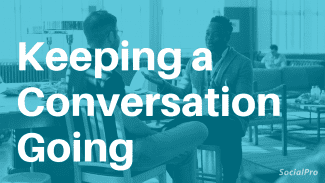

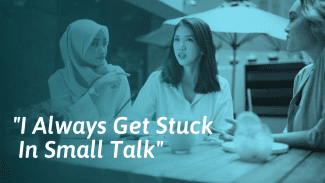

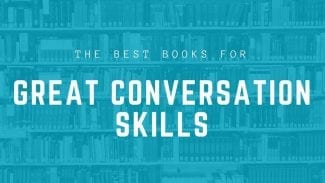


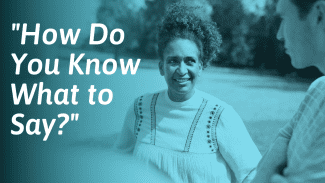
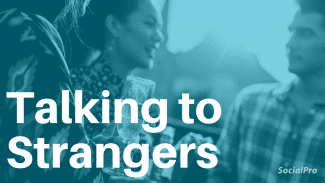
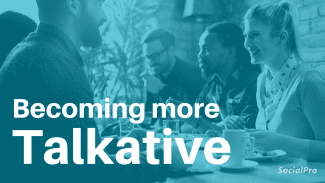
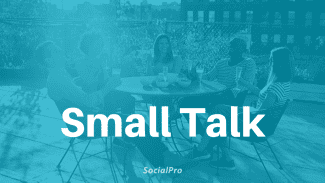

i need the name of the creator of this for my school project thanks!